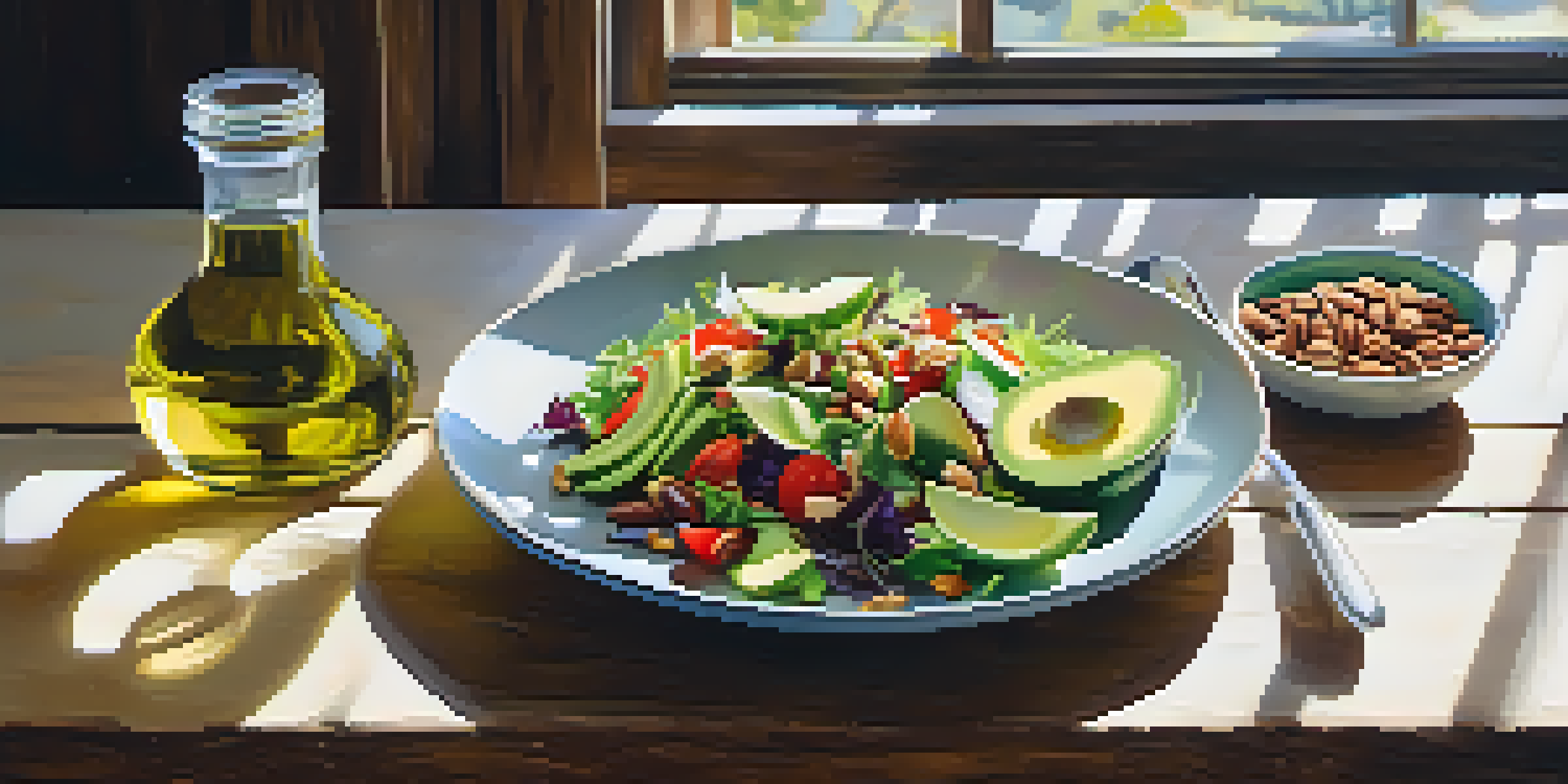How Fats Contribute to Nutrient Absorption in Vegetarians

Understanding Nutrient Absorption in the Body
Nutrient absorption is the process by which our bodies take in vitamins, minerals, and other essential compounds. It's a crucial part of digestion, as it determines how effectively our bodies utilize the food we consume. For vegetarians, understanding this process is key to ensuring they meet their nutritional needs, especially since some nutrients are harder to absorb without the right dietary components.
The Role of Fats in Nutrient Absorption
Fats play a significant role in the absorption of fat-soluble vitamins, namely A, D, E, and K. These vitamins are crucial for various bodily functions, including vision, bone health, and immune function. Without adequate dietary fat, our bodies struggle to absorb these essential nutrients, which can lead to deficiencies.
Fats Aid Nutrient Absorption
Incorporating healthy fats is essential for effectively absorbing fat-soluble vitamins A, D, E, and K.
Healthy Fats to Include in a Vegetarian Diet
Incorporating healthy fats into a vegetarian diet is easier than you might think. Foods like avocados, nuts, seeds, and olive oil are excellent sources of good fats. These options not only help with nutrient absorption but also provide additional health benefits, such as heart health and improved brain function.
Balancing Fats for Optimal Nutrient Uptake
While including fats is important, balance is key. Too much fat can lead to excess calorie intake, while too little can hinder nutrient absorption. Aim to include a variety of healthy fats in moderation to ensure you’re getting the benefits without overdoing it.
Balance is Key for Health
Maintaining a balanced intake of healthy fats ensures optimal nutrient absorption without excess calorie intake.
Combining Fats with Nutrient-Rich Foods
Pairing fatty foods with nutrient-dense options can enhance absorption. For example, adding avocado to a salad loaded with spinach (high in vitamin K) increases the amount of vitamin K your body absorbs. This simple combination illustrates how strategic food pairing can maximize nutrient intake.
Impact of Cooking Methods on Nutrient Absorption
Cooking methods can also affect how fats and nutrients interact. For instance, lightly sautéing vegetables in olive oil can increase the absorption of fat-soluble vitamins. Understanding how to prepare your meals can make a significant difference in how well your body absorbs nutrients.
Strategic Food Pairing Matters
Combining fatty foods with nutrient-rich options enhances the absorption of essential vitamins and minerals.
Potential Pitfalls in Vegetarian Diets
Vegetarians may face certain pitfalls when it comes to nutrient absorption. A diet overly focused on low-fat foods can hinder the intake of essential fat-soluble vitamins. It's important to be mindful of these potential gaps and adjust your diet accordingly to ensure you're not missing out on vital nutrients.
Conclusion: Embracing Fats for Better Health
In conclusion, fats are not the enemy; rather, they are a crucial ally in nutrient absorption, especially for vegetarians. By understanding their role and incorporating healthy fats into your meals, you can enhance your overall nutrient intake and promote better health. So, don’t shy away from fats—embrace them for a balanced and nutritious vegetarian diet!